4 skincare lies that we need to stop believing
Written By Jenny Wu on
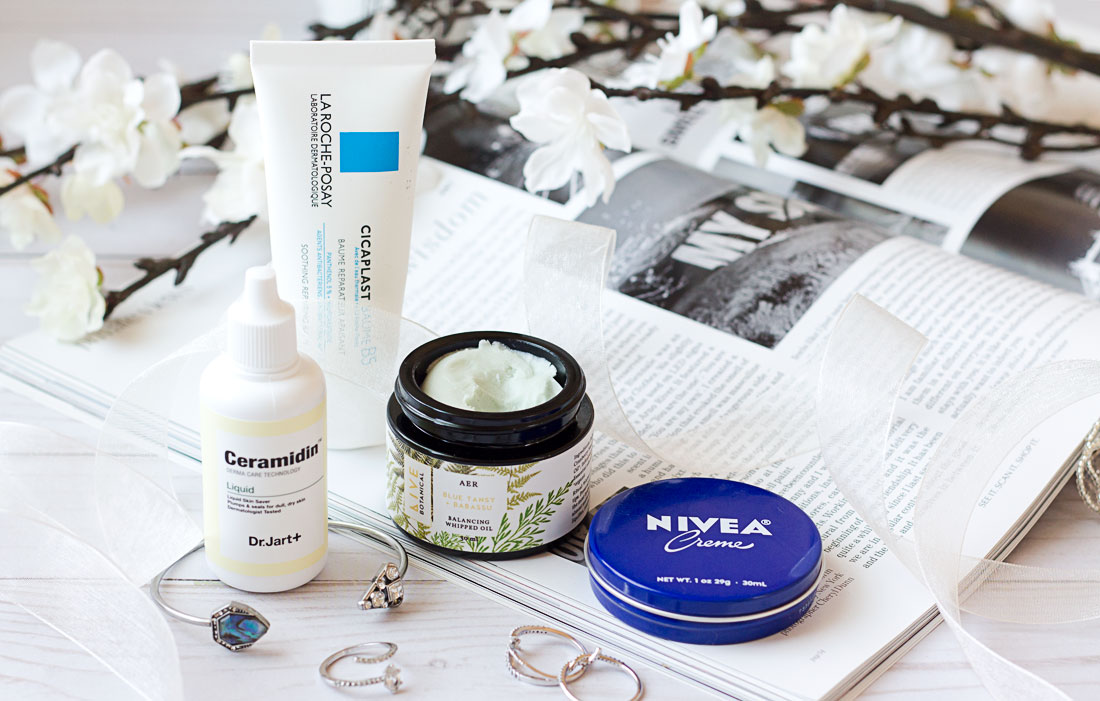
When it comes to something as personal as skincare, everyone is entitled to their opinion on what works for their own skin and sharing those opinions online. What’s dangerous is when people start blurring the lines between opinions and facts, disguising the former as the latter, and misleading other people as a result. Today’s post/rant is to debunk some of these “facts” and provide tips on how to make informed skincare decisions.
1 | Chemicals are toxic, natural ingredients are better
This has got to be the worst lie of them all, and it’s a shame so many eco-beauty brands use this to market their products. Some of the best and most-widely researched ingredients are these so-called “chemicals”: retinol, niacinamide, and peptides just to name a few. On the other hand, poison ivy is about as “natural” as they come, but no one in their right mind would say that’s good for you. Essential oil is another “natural” example that may provide aromatherapy benefits, but they can also cause skin sensitivities and irritations (source). The fact is whether an ingredient is naturally derived or man-made has no bearings on its efficacy whatsoever. A good ingredient is one that has been well studied with proven benefits, period.
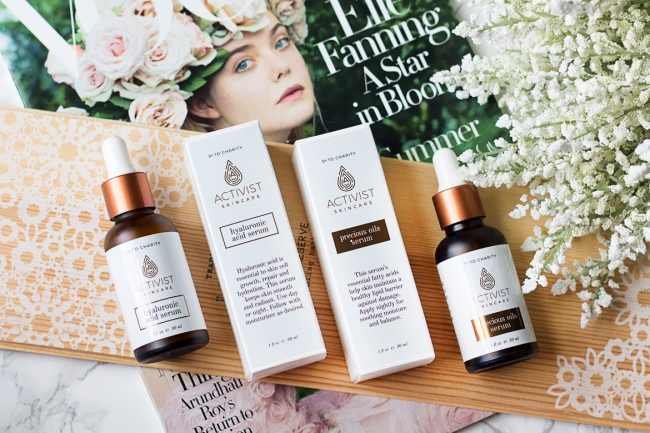
I do use some eco-beauty products myself because I think those particular formulas include well-researched extracts (hello green tea and licorice root!), and I know plenty other that use strictly green brands because of lifestyle preference, which is totally cool. There’s no need to pit “natural” and “chemical” products against each other and claim that one is superior.
Sources/Further Reading:
Can we stop with all this “organic” “natural” stuff? It’s not better for your skin! – Read the whole thread, not just the top post.
Are Natural & Organic Ingredients Better for Your Skin?
Would You Rather Buy Organic Or Poison Your Family? EWG Wants You To Pick One – Why I don’t fully trust everything EWG says
Your Beauty Products Are Not Killing You
2 | Physical sunscreens are better than chemical sunscreens
You all know how passionate I am when it comes to sunscreens and I’ve done my fair research on the subject. So imagine my annoyance (more like anger) when I saw this awful statement while blog hopping:
“Chemical filters work by penetrating into your bloodstream. They may prevent sunburn but have limited effectiveness against UVA”

Clearly this person has never heard of Avobenzone, Mexoryl XL, Mexoryl SX, Tinosorb M, Tinosorb S, or Uvinul A Plus, all common “chemical” ingredients that protect against UVA. Also chemical filters don’t work by penetrating anything, they work just fine on the top layer of our skin. While it’s true that some (Homosalate, Octocrylene, and Oxybenzone) can have negative effects if significant amounts are absorbed, the keywords here are if and significant amounts. A well-formulated sunscreen will limit the absorption of its filters, and based on current studies available, the benefits of wearing sunscreen highly outweigh any potential risks of absorption (source).
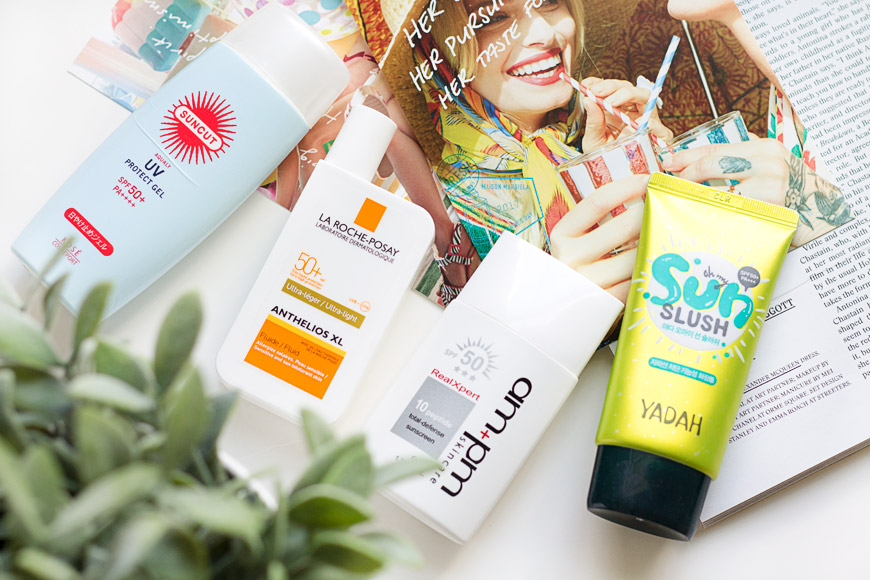
Now if a certain chemical sunscreen has a lousy formula, by all means call it lousy, but there’s no need to throw the baby out with the bath water and call all chemical sunscreens inferior. I will agree that a lot of American chemical sunscreens are pretty awful due to the limited filters approved by the FDA, but it’s so easy to buy Japanese, Korean, or even European sunscreens online that there’s no excuse for limiting yourself to American brands and then crying about it.
While sunscreen formulation is important (and you can learn more about that here), in the end the best sunscreen is one that you enjoy wearing. Because if you’re not applying enough of it daily, then what’s the point?
Sources/Further Reading:
7 sunscreens for all scenarios and skin types
PA? PPD? Broad Spectrum? The ultimate guide to understanding and choosing the best sunscreen
Mineral vs. Synthetic Sunscreens
3 | Mineral Oil is toxic/comedogenic/Satan’s tears
I discussed this in my $1 Nivea Creme review but I’ll say it again, mineral oil is not evil! It’s actually one of the safest and non-irritating ingredients available, and is an excellent occlusive when your moisture barrier has been compromised. It’s a simple ingredient meant to lock moisture into our skin and prevent trans-epidermal water loss, and it does a fantastic job of that. While mineral oil (and petrolatum/Vaseline) are derived from crude oil, all toxic substances are removed during the purification process and the quality is regulated in the US and EU (source), so the fear of toxicity is unwarranted.
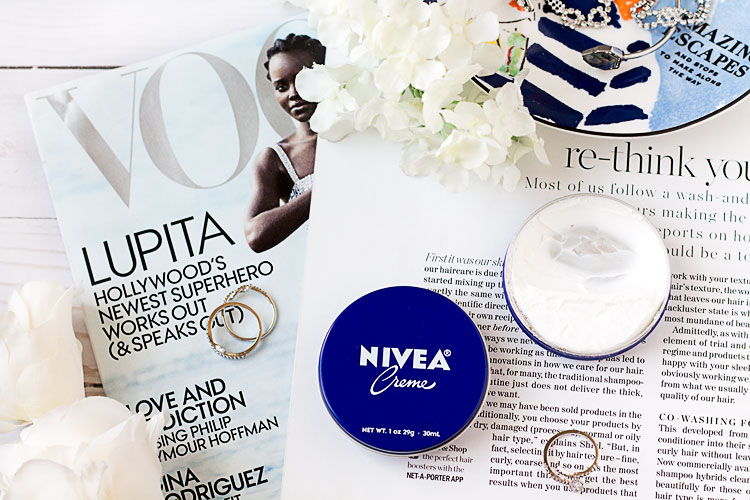
As for it being comedogenic? That’s also a load of crap because mineral oil molecules are too big to even get into our pores, much less clog them. However mineral oil is an occlusive, meaning it will trap any bacteria, sebum (neither or which should really be an issue if you’ve cleansed prior…), or comedogenic ingredients underneath, which then can cause acne. So if you have oily skin, mineral oil probably isn’t the best ingredient for you, but that doesn’t make it bad by any means.
Sources/Further Reading:
Is Mineral Oil Bad For the Skin
The Top 5 Myths About Mineral Oil – Part 1 & Part 2
Incidecoder – Mineral Oil
4 | Silicones suffocate the skin (and other bs)
Silicones are probably up there with mineral oil as one of the misunderstood and hated skincare ingredients. Common claims include clogging pores, “suffocating the skin” (my eyes just rolled to the back of my head typing this), causing acne, and preventing ingredients from getting absorbed. Except that all those claims are false.
Silicones are a non-comedogenic emollient that can help protect against moisture loss, but without the heavy feeling of occlusives like mineral oil. They are generally non-irritating, and some forms can even be anti-inflammatory, which is why they’re often found in scar-healing formulas. They also have a unique molecule structure, with gaps between each molecule allowing other ingredients to pass through, but the molecules themselves are still large enough form a protective barrier on your skin.
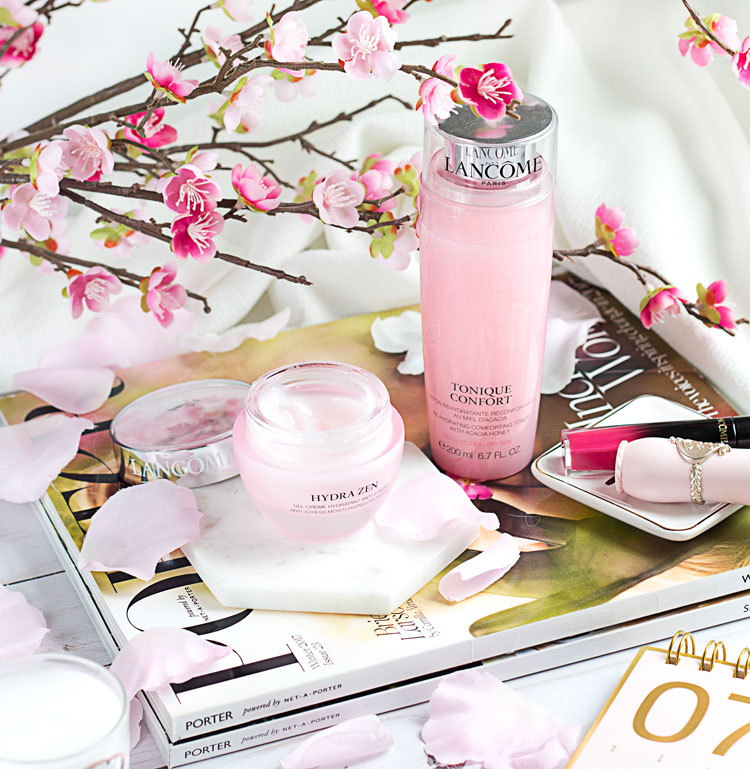
Personally I actually don’t like silicone-based products, not because of the dumb reasons above but because they tend to pill/ball up when layered under sunscreen. It may be a combination of the products I use or that I rush through my routine too quickly, but don’t let this deter you from using silicones in your routine.
Sources/Further Reading:
Paula’s Choice – Silicones
Silicones in skincare – the facts
Are silicones bad for the skin?
How to make informed skincare decisions
Skincare by nature is very subjective, and there are different opinions even when it comes to proven ingredients like vitamin c. But that’s just it, they’re only opinions. There’s a difference between “My skin doesn’t like vitamin c“ (true story ????????♂️) and “Vitamin C is useless“, especially if the latter isn’t backed up by any reliable sources. The statement “don’t believe everything you read online” couldn’t be more true in these situations. So what should you do instead?
- Ideally the credible sources should be provided, and by credible sources I mean multiple medical professionals, chemists, or studies from peer reviewed journals. A fear-mongering article on chemicalsarevil.org? Not good.
- Online magazine articles can be a hit or miss, depending on the “experts” they cite. FYI another blogger or even a brand owner aren’t the best experts to cite.
- The SkincareAddiction subreddit, though intense at times, is actually a pretty good source for clarifying facts. They’re all about scientific based evidence there, which I appreciate.
- Confused about ingredients? Look them up on INCIDecoder or Paula’s Choice Ingredient Dictionary. I like both because their information is backed by research journals, not old wives’ tales.
In the end, your skincare routine should be one that works for your skin and makes you happy. If you still don’t like “chemicals” or mineral oil, you absolutely have the right to avoid them, but please don’t mislead people into thinking that they absolutely shouldn’t use it either.
So I may or may not ruffle feathers with this post, but sometimes the truth hurts. What are some skincare lies you’ve seen that’s made you cringe? Do share in the comments below!
FYI The Klog just published an insightful post 5 controversial ingredients, including silicones, with input from several dermatologists. Definitely worth reading if you want to learn more about parabens, alcohol, and hydroquinone!

Passionate about science-based skincare. Tested hundreds if not thousands of products since my 20's. Working regularly with brands like iHerb, Ulta, CurrentBody, and MedStar Health to share my knowledge and experience in all things beauty. Learn more.
Skin profile: 35+, dry/combination, focused on well-aging, hydration, and a healthy glow ✨

Comments & Questions
Jennifer Q
I enjoyed this post, I have alot to learn when it comes to skincare.
Jenny Wu
So glad you liked it, thanks for reading!
Shireen L. Platt
I nodded my head a lot while reading through this post! YOu're so right and will be sharing this!
Jenny Wu
Yay for spreading awareness! Thanks for sharing Shireen!
LindaLibraLoca
I have seen all of the above and just recently got into a real fight with a coworker (a physician) who let his daughter run around without SPF because he had forgotten theirs at home and when I offered to share ours, told me off for using "dangerous chemicals" on my children. he was adamant that letting her burn in the sun was better than using a (kids friendly, alcohol and fragrance free European) SPF that used mixed filters. I usually never comment on the way other people raise their kids, but when he told ME off for endangering my children, I simply couldn't keep quiet.
Anne - Linda, Libra, Loca
Jenny Wu
What a terrible thing for your coworker to say!! Good for you for speaking up, I hope you told him what an irresponsible parent he was for letting his kids burn in the sun!
Rowena @ rolala loves
This is fantastic post Jenny! Nothing is absolute and making informed decisions is the best thing we can do for ourselves. Though I have switched largely to clean beauty products I would never say that natural is always better and you're so right that there is no need to pit chemical against natural. One thing that always gets me is when people think that they get enough sun protection from their makeup. I always tell people that just because your foundation has SPF doesn't mean that it provides adequate protection because you'd have to use so much of it. And don't get me started on the whole it's okay when products burn on your skin because that means they're working. Just no!
Jenny Wu
Thank you Rowena! Goodness the spf in foundation irks me to no end, I feel like brands are doing customers a huge disfavor and giving them a false sense of security by doing this! The burning thing is horrible too, I fell for that before and my skin definitely paid the price!
Laura
My favorite skincare lie is that you shouldn't wear makeup/skincare etc every day because "skin needs to *breathe*". Pores. Do. Not. Breathe. Of course you can give your skin a break and apply less product, but the breathing aspect makes me cringe.
Personally I like to use physical sunscreen as I feel they're safer, my skin loves physical sunscreens. Recently I've come across information that 'chemical' sunscreens might pollute the ocean? Will research this more before making any statements. :P
Jenny Wu
Lol the skin needing to breathe makes me laugh because it's just absurd when you think about it. Shouldn't that mean we should all get naked or else we'd be suffocating our skin with our clothes?
I've actually been using physical sunscreen more as well and some are quite nice, though I still need my chemical ones when I'll be out all day. I believe the info about polluting the ocean/killing the coral reefs is true, I think Hawaii banned sunscreens with that ingredient, though I think most of the European/Asian formulas don't include it. It's just the US formulas that are still using horrible ingredients sadly :(
Naya
Great article here, Jenny! I have to agree, skincare is not so black/white. I am no expert, but I listen to my skin. So if it doesn't like a certain formula/ingredient, I try to stay away from it. Lol at satan's tears - I actually apply that 1$ Nivea cream after every swimming session and it is the only thing that saves me after literally spending one hour with my face dunked in chlorine.
Naya
partyparrotblog.com
Jenny Wu
Thank you Naya! I totally agree, it's so important that we listen more to our skin and not blindly follow everything we read! And that's awesome that the Nivea creme works so well for you, it's truly a classic for a reason!
Arinda Puspitasari
Lovee the flatlay it looks perfect haha and can't agree more with this post x
www.arindapuspitasari.com
Amy
Love this! There are so many myths, perpetuated by marketing, it makes it hard to know what to think sometimes.
FASHION TALES
Ultimately, one must do their due diligence. I think a lot of people don't properly research and rely solely on (one) magazine or media for their information. I think you also need to listen to your body and skin, just like how a lot of people say veganism is the ONLY way to be healthy ... erm, no! My body needs more substantial nutrients but I can abstain from other foods occasionally that cause an unfavourable reaction to my body, etc. I actually used to be vegetarian for 14 years and now I am not, ironically had to switch for health reasons, haha. enjoyed this post.
Susanne
Thank you, thank you, thank you! Especially for number one. this is a brilliant and so well needed post. I'm so tired of people hyping about "chemicals" and how "toxic" they are. I totally trust well researched ingredients a lot more than i do more "natural" but less researched agents. People today don't understand how the dose actually decide IF something is toxic, people trust bloggers more than science (which is a super scary trend), and it's like everything has to be black or white. I happily use Mary Kay products with well researched stuff like parabens and salicylic acid (which is why I use it, it has cured my acne), I definitely want to use fluoride in my toothpaste, etc, but I also love to use natural soaps and shampoo bars for my hair - but mainly to avoid buying products that come in plastic packaging.